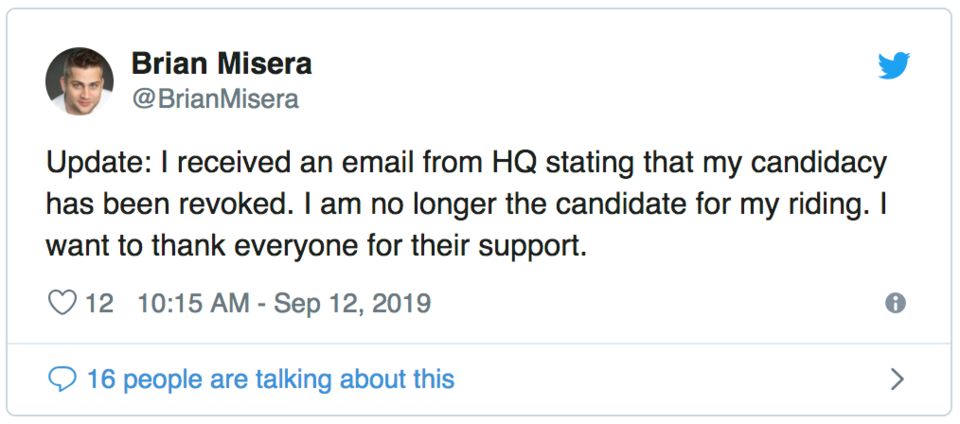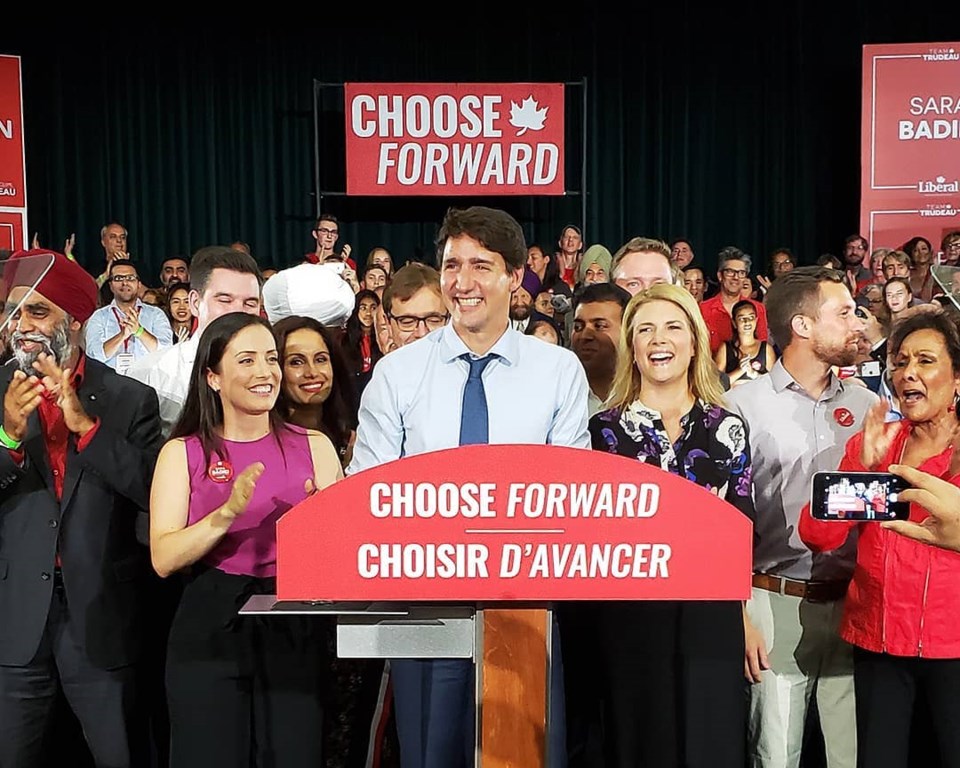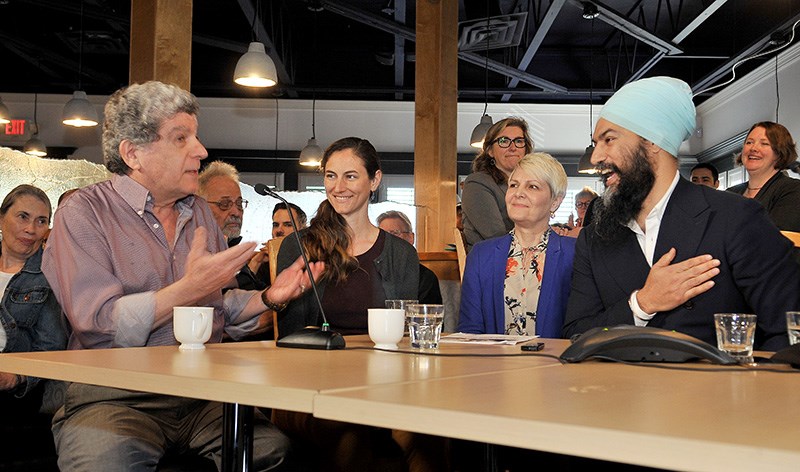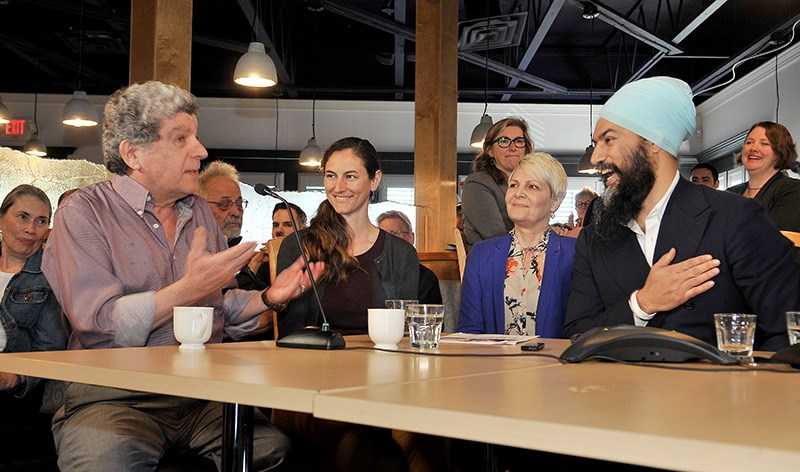With 35 days to go until the federal election, the Tri-Cities' two ridings are increasingly shaping up to be key electoral battlegrounds, say experts.
Pundits have cast the Lower Mainland — along with Quebec and the Greater Toronto Area (GTA) — as swing regions that could help decide who will next govern the country. Like the GTA, the ridings of Coquitlam-Port Coquitlam and Port Moody-Coquitlam reflect a wider national struggle over suburban votes, where conservative sensibilities, progressive social policies and concerns for the environment all resonate with a mixed voter base.
“It’s a diverse group of ridings with different kinds of populations. So there's something for all three of those major parties to work with,” political scientist Stewart Prest told The Tri-City News.
Coquitlam-Port Coquitlam
In the 2015 federal election, Liberal MP Ron McKinnon won the Coquitlam-Port Coquitlam seat riding a "red wave" that carried the federal Liberals from two MPs across British Columbia to 17.
Still, the margin was slim: Less than 1,800 votes separated McKinnon from his then Conservative rival. And while this time around McKinnon has the incumbent advantage, his riding is not a Liberal bastion of support guaranteed to help carry the party to victory in October.
“This entire region is essentially a new hold for the Liberal Party,” said Press. “They’re going to have to work to secure [it].”
Before the two Tri-City electoral districts were re-drawn in the lead-up to the 2015 election, Conservative MP James Moore had won every election from 2000 to ’11 by safe margins. But where Moore had a long track record in favour of progressive social issues such as same-sex marriage, current Tory candidate Nicholas Insley appears to be more closely attuned to a small but loud Christian right.
According to reporting by The BC Catholic, on Feb. 27, Insley (along with Port Moody-Coquitlam Conservative candidate Nelly Shin) attended an anti-abortion presentation at Coquitlam’s Westwood Community Church led by Alissa Golob, an anti-abortion activist and founder of the action group Right Now, which advocates overhauling abortion laws in Canada.
Last week, The Tri-City News reported People’s Party of Canada (PPC) candidate Brian Misera was forced out of the campaign after he called out racist “human garbage” within his own party. A spokesperson for the PPC said it has no plans to run another candidate, a turn of events that positions Insley to bring in far-right voters into the Tory tent. At the same time, Conservative leader Andrew Scheer continues to court voters with promises of tax breaks to make life more affordable, a message often well recieved by many suburban voters.

Port Moody-Coquitlam
Just as McKinnon picked up his seat in the wake of James Moore’s retirement in 2015, first-time Liberal candidate Sara Badiei is looking to do the same as longtime NDP MP Fin Donnelly retires in Port Moody-Coquitlam.
Badiei — like her Conservative rival Shin, a former missionary, teacher and singer who was parachuted into the Tri-Cities from Ontario — appears to have been handpicked. Along with a wide set of credentials in engineering and humanitarian work, Badiei has appeared alongside Prime Minister Justin Trudeau in a number of recent photos ops, on Rocky Point Pier during the B.C. Day long weekend and, most recently, flanking the Liberal leader at the party’s first rally of the campaign in Vancouver-Kingsway.
“When the leader shows up, it shows that the riding matters,” said Prest. “It tells [party organizers and voters] ‘We need this, we need all hands on deck.’ It does really make a difference.”

But convincing Port Moody-Coquitlam residents to vote Liberal could be a challenge in riding where the NDP has traditionally had a strong base of support. And while Donnelly’s departure casts a level of uncertainty over the race, three-term Coquitlam Coun. Bonita Zarrillo has taken up the NDP mantle, carrying the most local name recognition out of any candidate in the riding.
In another sign of how much the riding matters, earlier this spring, NDP leader Jagmeet Singh announced his party’s trademark universal pharmacare plan at Pasta Polo in Coquitlam.
“She’s a typical strong NDP candidate,” Gerald Baier, a UBC professor of political science, said last week. “If they can hold onto that [seat], that’s a big litmus test for the NDP. If they can’t, that’s going to be a great indicator of a precipitous fall.”

Wildcards
In a campaign where victory increasingly hinges on the performance of each party’s national leader, candidates without a strong local presence tend to lean on their parties’ bigger narratives, Prest told The Tri-City News.
That could benefit Green Party candidates Brad Nickason of Coquitlam-Port Coquitlam and Bryce Watts of Port Moody-Coquitlam. While the Greens are largely a one-issue party, that issue — climate change — has become increasingly important to Canadian voters. That is especially true among young voters, something that could make a difference in the Tri-Cities, where the population skews slightly younger than the national average.
Because the proposed Trans Mountain expansion project passes through the Tri-Cities, Prest said some local voters could be mobilized in the same way as the residents of Burnaby-North Seymour.
“The pipeline actually affects people in the riding, so that gives them a focal point to organize some resistance,” he said.
But with polls suggesting the majority of B.C. voters are split or often in favour of the pipeline, the Green’s success at the ballot box could require them to shift the debate around pipelines, instead appealing to the wider sensibility among voters that climate change is the biggest issue of our time.



